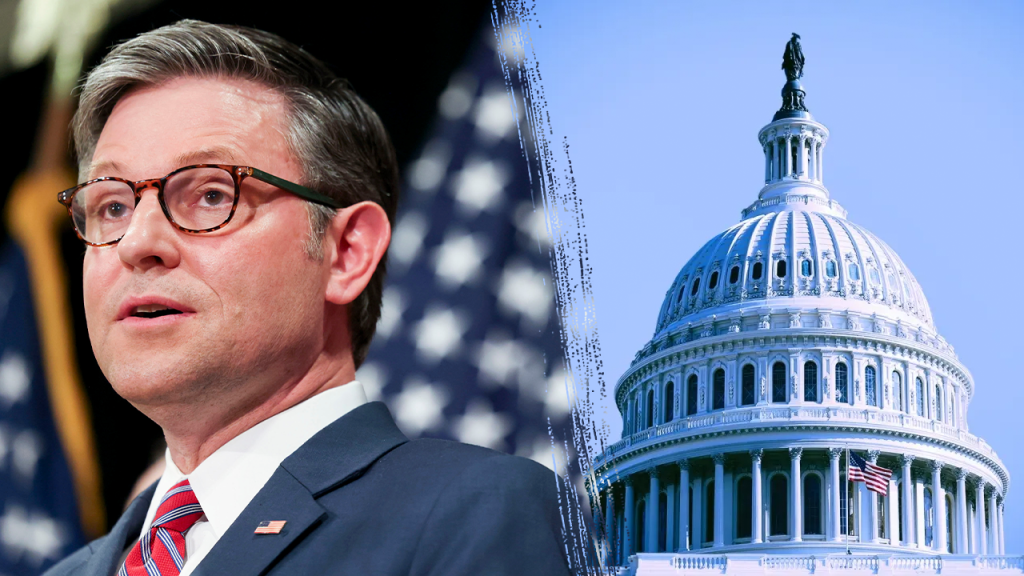Mike Johnson’s ascension to the speakership of the House of Representatives marks a significant turning point in the 118th Congress, a stark contrast to the tumultuous 15-round battle that installed his predecessor, Kevin McCarthy. Johnson’s election, secured in a single round of voting along party lines, underscores a concerted effort by the Republican Party to project unity and stability after a period of internal strife. While some conservative voices expressed reservations about Johnson’s leadership, particularly his handling of government funding and other legislative matters, the Louisiana Republican ultimately managed to consolidate support and secure the gavel, signaling a desire within the party to move forward with a unified agenda. This swift confirmation stands as a testament to Johnson’s ability to navigate the complex political landscape and garner the necessary backing to lead the House.
The backdrop of Johnson’s election was not without its challenges. Conservative figures, including Rep. Thomas Massie of Kentucky, voiced strong opposition to Johnson, even going so far as to make dramatic pronouncements of their refusal to support him. Massie’s vociferous dissent, aired publicly on a prominent news program, reflected the deep divisions that have characterized the Republican caucus in recent times. These divisions stemmed from differing views on legislative strategy and policy priorities, highlighting the delicate balance Johnson needed to strike to unite the party under his leadership. The presence of such strong opposition threatened to derail Johnson’s bid for the speakership and potentially plunge the House into another protracted leadership struggle.
Adding to the complexity of the situation was the involvement of former President Donald Trump, who threw his considerable weight behind Johnson’s candidacy. Trump’s endorsement, delivered just hours before the vote, served as a powerful signal to the Republican Party, underscoring the importance of unity and aligning behind Johnson. This endorsement likely played a significant role in swaying undecided members and consolidating support for Johnson, ultimately contributing to his decisive victory. Trump framed Johnson’s election as a victory for the Republican Party and a reaffirmation of his own election victory, further intertwining his political fortunes with those of the new House Speaker.
Despite the rumblings of discontent within the Republican ranks, Johnson ultimately secured the speakership with a clear majority, demonstrating his ability to navigate the complex political terrain and consolidate support from various factions within the party. His victory was a clear signal of the party’s desire to avoid a repeat of the chaotic speaker election that preceded McCarthy’s eventual, and short-lived, tenure. This decisive win also allowed the House to proceed quickly with the crucial business of certifying the presidential election results, a process that some feared would be delayed by a protracted leadership battle.
Johnson’s election as Speaker signifies more than just a change in leadership; it represents a conscious effort by the Republican Party to consolidate power and project an image of unity. The relatively smooth transition of power, compared to the tumultuous election of McCarthy, suggests a desire within the party to move past internal divisions and focus on a unified agenda. The challenges faced by Johnson during his campaign for the speakership, particularly the vocal opposition from some prominent conservatives, highlight the delicate balance he will need to maintain to steer the House effectively and deliver on the Republican Party’s legislative priorities.
Looking ahead, Johnson’s leadership will be tested by the persistent divisions within the Republican Party and the challenges of governing in a highly polarized political environment. His ability to manage these divisions and maintain party unity will be crucial to his success as Speaker. The swift and decisive nature of his election, however, suggests a degree of confidence within the party that Johnson can navigate these challenges and effectively lead the House in the 118th Congress. With a clear mandate and the backing of key figures like Donald Trump, Johnson is poised to shape the legislative agenda and steer the House through what promises to be a consequential period in American politics.

